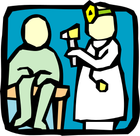From the Office of the Insurance Commissioner

Medicare beneficiaries may be wondering if Medicare will cover coronavirus. Here’s what we currently know about what it will cover:
- Medicare covers the lab tests for coronavirus. You pay no out-of-pocket costs when your your doctor or other health care provider orders it.
- Medicare covers all necesary hospitalizations. This includes if you’re diagnosed with coronavirus and might otherwise have been discharged from the hospital after an inpatient stay, but you need to say in the hospital under quarantine.
- At this time, there’s no coronavirus vaccine, but when one becomes available,Medicare Part D will cover it.
- If you have a Medicare Advantage (MA) plan, you have access to these same benefits. Medicare allows these plans to waive cost sharing for coronavirus lab tests. Many MA plans also offer telehealth benefits. Check with your plan about costs and coverages.
- Medicare also covers “virtual check-ins” (also known as telemedicine), so you can connect with your doctor by phone or video or an online patient portal to see if you need to go in for a face-to-face visit.
To stay informed about Medicare coverage and coronavirus, along with tips to keep yourself safe, visit medicare.gov (www.medicare.gov).
Tips for keeping yourself healthy
The U.S. Centers for Disease Control (CDC) (www.cdc.gov), along with the Washington state Department of Health (www.doh.wa.gov), are monitoring the situation closely. The best thing you can do is stay calm and follow these tips:
- Wash your hands often with soap and water for at least 20 seconds, especially after you use the bathroom, before you eat and after you blow your nose, cough or sneeze.
- Avoid touching your eyes, nose and mouth with unwashed hands.
- Stay home when you’re sick.
- Avoid close contact with others who are sick.
- Cover your cough or sneeze with a tissue and then throw the tissue away. If you don’t have a tissue, cough or sneeze into the inside crook of your elbow.
- Try to avoid touching high-touch surfaces in public places, like elevator buttons, door handles, handrails, and handshaking with people. Use a tissue or your sleeve to cover your hand or finger if you must touch something.
- Clean and disinfect your home to remove germs: Practice routine cleaning of frequently touched surfaces—tables, doorknobs, light switches, handles, desks, toilets, faucets, sinks and cell phones).
- Refrain from hand shakes and hugs.
While there is no vaccine yet for coronavirus, it’s never too late to get your annual flu shot, which is also covered by Medicare Part B. Talk to your doctor or pharmacist about how you can protect yourself and those around you.
Prepare for your health care needs
Be sure to have over-the-counter medicines and medical supplies, such as tissues, to treat fever and other symptoms. Most people will be able to recover at home from coronavirus.
Also make sure you have enough household items and groceries on hand so you’ll be prepared to stay at home for a period of time.
Extra caution with crowds and travel
Avoid crowds, especially in poorly ventilated spaces. Your risk of exposure to respiratory viruses like COVID-19 may increase in crowded, closed-in settings with little air circulation if there are people in the crowd who are sick.
The CDC recommends you defer all cruise ship travel worldwide, particularly if you also have underlying health issues.
Older adults and travelers with underlying health issues should avoid situations that put you at increased risk for more severe disease. In addition to avoiding crowded places, you should avoid non-essential travel such as long plane trips, and especially avoiding embarking on cruise ships.


